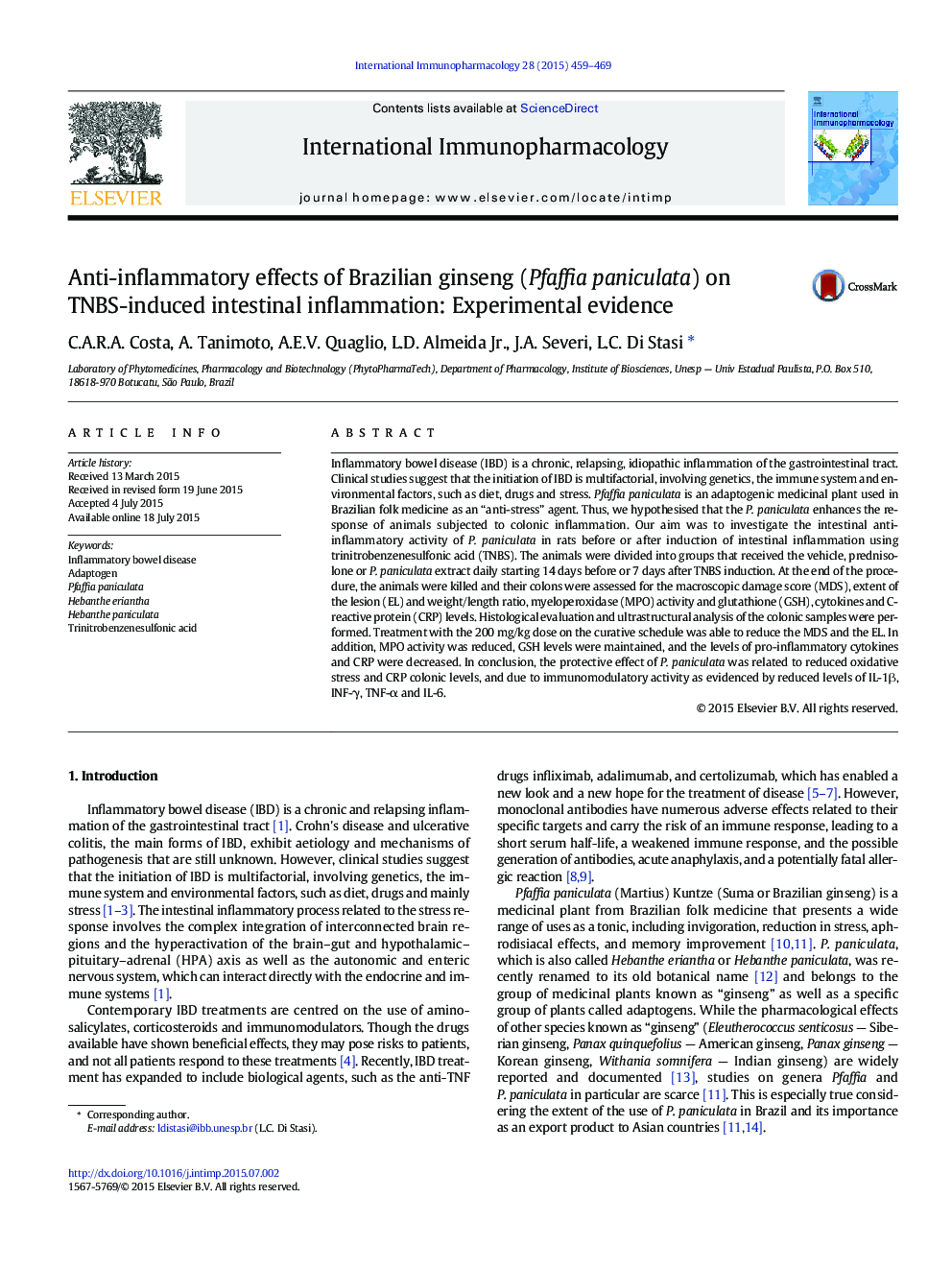| کد مقاله | کد نشریه | سال انتشار | مقاله انگلیسی | نسخه تمام متن |
|---|---|---|---|---|
| 2540480 | 1122594 | 2015 | 11 صفحه PDF | دانلود رایگان |

• P. paniculata (Brazilian ginseng) is a medicinal plant from Brazilian folk medicine.
• P. paniculata presents a wide range of uses including reduction in stress.
• The plant belongs to the group of medicinal plants known as “ginseng”.
• Treatment with the P. paniculata extract was able to control inflammatory markers.
• The microscopic evaluation demonstrated a significantly reduce in the structural damage.
Inflammatory bowel disease (IBD) is a chronic, relapsing, idiopathic inflammation of the gastrointestinal tract. Clinical studies suggest that the initiation of IBD is multifactorial, involving genetics, the immune system and environmental factors, such as diet, drugs and stress. Pfaffia paniculata is an adaptogenic medicinal plant used in Brazilian folk medicine as an “anti-stress” agent. Thus, we hypothesised that the P. paniculata enhances the response of animals subjected to colonic inflammation. Our aim was to investigate the intestinal anti-inflammatory activity of P. paniculata in rats before or after induction of intestinal inflammation using trinitrobenzenesulfonic acid (TNBS). The animals were divided into groups that received the vehicle, prednisolone or P. paniculata extract daily starting 14 days before or 7 days after TNBS induction. At the end of the procedure, the animals were killed and their colons were assessed for the macroscopic damage score (MDS), extent of the lesion (EL) and weight/length ratio, myeloperoxidase (MPO) activity and glutathione (GSH), cytokines and C-reactive protein (CRP) levels. Histological evaluation and ultrastructural analysis of the colonic samples were performed. Treatment with the 200 mg/kg dose on the curative schedule was able to reduce the MDS and the EL. In addition, MPO activity was reduced, GSH levels were maintained, and the levels of pro-inflammatory cytokines and CRP were decreased. In conclusion, the protective effect of P. paniculata was related to reduced oxidative stress and CRP colonic levels, and due to immunomodulatory activity as evidenced by reduced levels of IL-1β, INF-γ, TNF-α and IL-6.
Figure optionsDownload as PowerPoint slide
Journal: International Immunopharmacology - Volume 28, Issue 1, September 2015, Pages 459–469